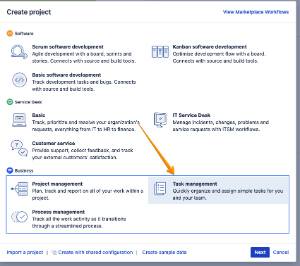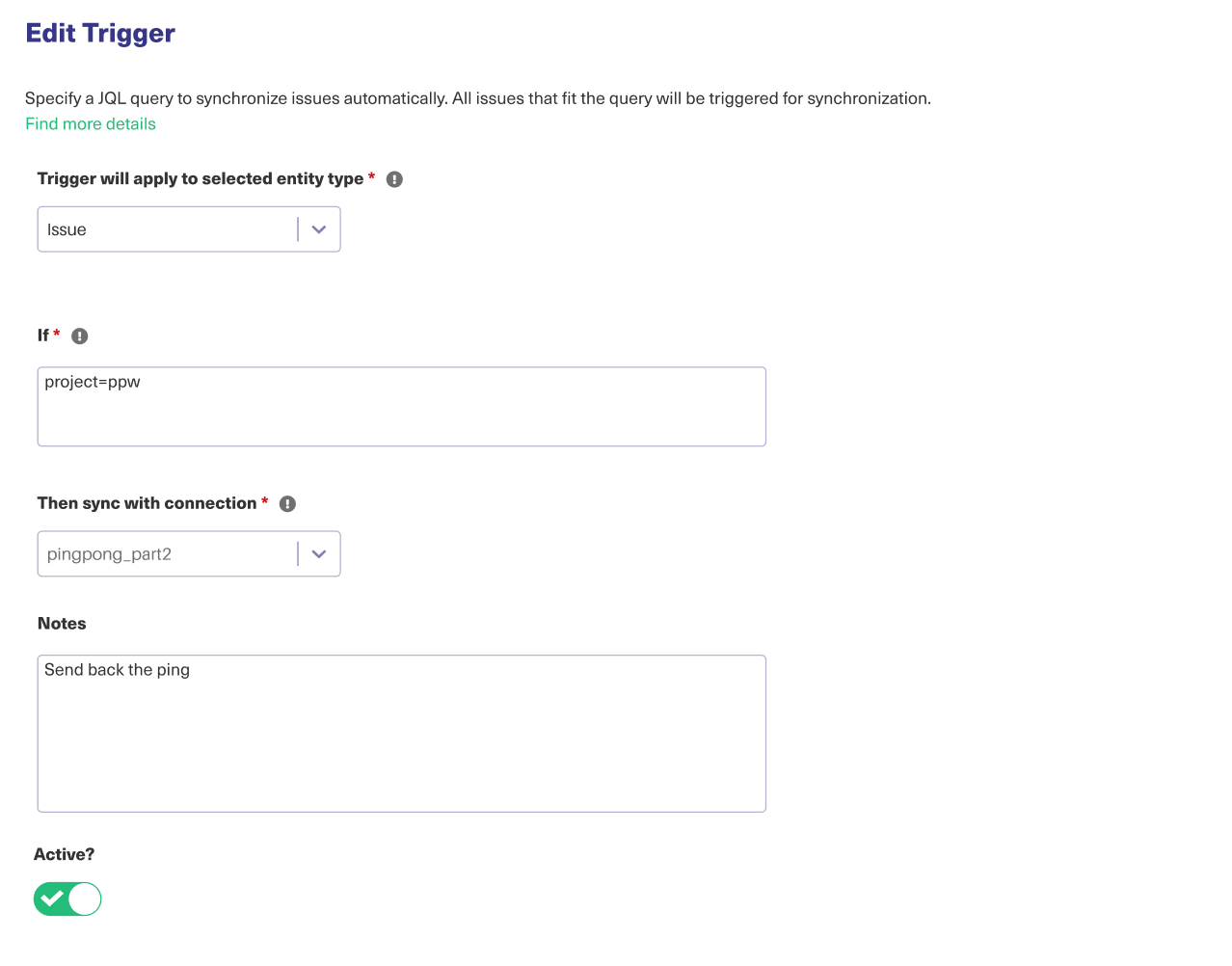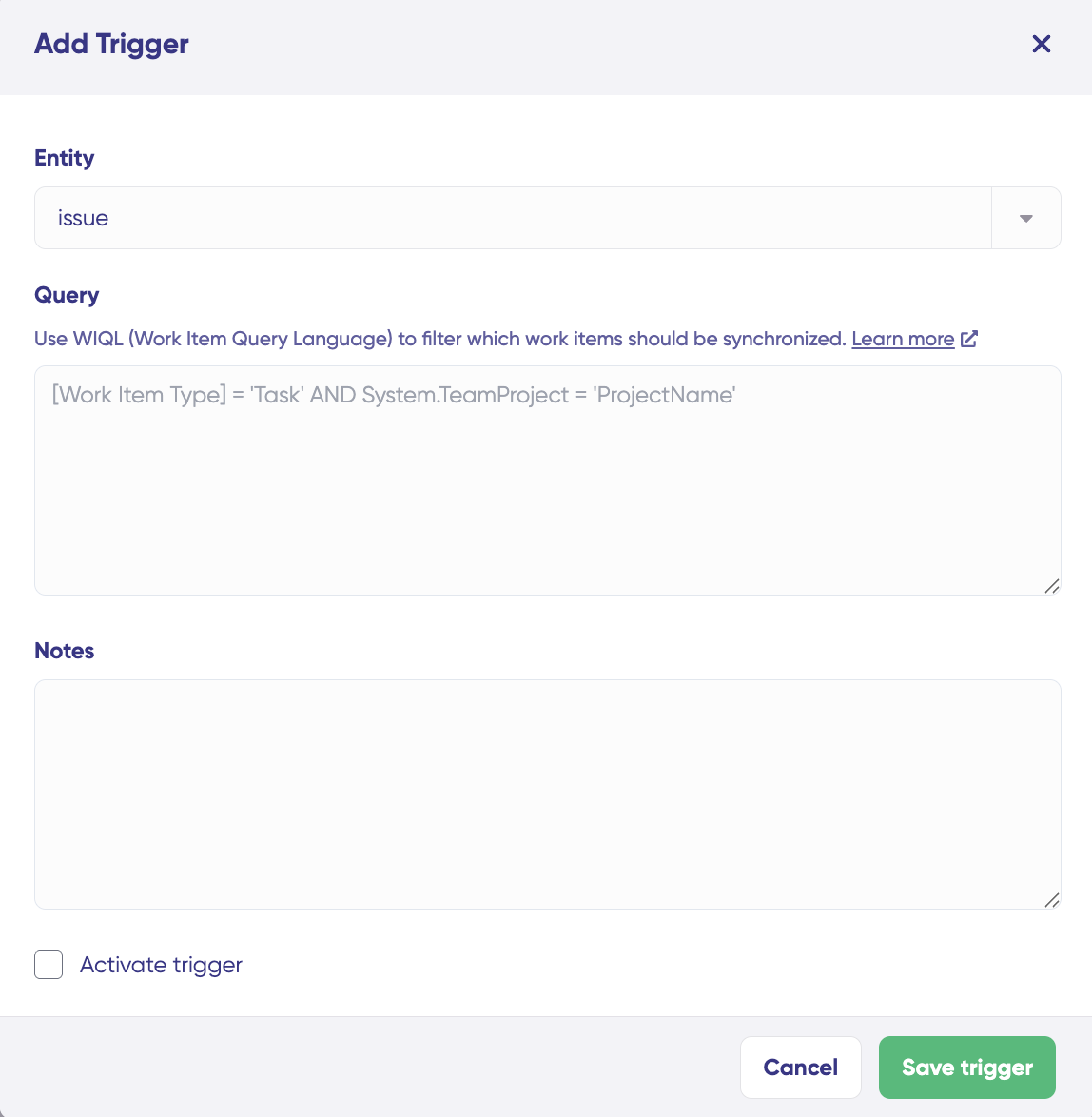Introduction
The performance of Exalate depends on many different factors as it depends on many different components:
- the underlying trackers exalate is integrating with
- The machines hosting the Exalate instance (when deployed outside of the tracker)
- The network layout between the two different environments and the quality of the network connection
- The type and size of information that is being exchanged
- The complexity of the mapping and transformation of the synchronization
The ping pong test has been set up to have a benchmark such that any performance regression can be highlighted as these occur. This test also acts as a load test to check how the solution behaves under load.
Environment Setup
The left Jira has 2 projects
- Ping Pong Source (PPS)
- Ping Pong Target (PPT)
The right Jira has 1 project
- Ping Pong Wall (PPW)
The source has a set of 1000 issues, containing a mix of comments and attachments of various sizes. The Jira Data Generator add-on (here) can be used to create such projects.
The Ping Pong test
The ping pong test will validate:
- The Exalate operation (which brings an issue 'under sync')
- The sync back operation (which triggers a message back)
- The trigger operation (which automatically Exalates an issue)
- The Update operation (by updating the description this change needs to be applied to the target)
- The Unexalate operation (which severe the synchronization tie between two issues)
The Flow of a Single Issue
The issue keys and project keys are different in the actual test
|
|
Description |
Effect on PPS
|
Effect on PPW
|
Effect on PPT
|
Exalate function |
|---|---|---|---|---|---|
| 1 |
PPS-1 gets exalated using the ping_pong connection |
-
|
-
|
-
|
Exalate
|
| 2 |
This creates an issue PPW-2 (on right jira)
|
-
|
create PPW-2
|
|
Create issue
|
| 3 |
The trigger on right Jira picks up the create event of PPW-2
|
-
|
-
|
-
|
synclistener captures create event
|
| 4 |
PPW-2 gets exalated using the ping_pong_part2 connection |
-
|
-
|
-
|
trigger on PPW executes an exalate
|
| 5 |
This creates on issue PPT-3 (on the left jira)
|
|
|
create PPT-2
|
create issue
|
| 6 |
The ping_pong_part2 has a syncback, an update syncevent is scheduled
|
-
|
-
|
-
|
Syncback is scheduling an update event
|
| 7 |
The incoming sync on PPW-2 updates a custom field 'Remote Key'
|
|
Field 'Remote Key' is updated with 'PPT-2'
|
|
issue is updated properly
|
| 8 |
The update is triggering a syncevent on the ping pong connection
|
-
|
-
|
-
|
synclistener captures update event
|
| 9 |
The ping_pong connection updates the custom field 'Remote Key'
|
Field 'Remote Key' is updated with 'PPT-2'
|
-
|
-
|
the issue is updated properly
|
There are in total 9 exalate operations performed for one cycle.
Setting Up the Test
To configure the test, you will need to setup the following:
- Jira A and Jira B
- Both on-premise
- Both have Exalate deployed
- The projects
PPS (Source - Jira A - Project Management configuration)

- PPW (Wall - Jira B - Project Management configuration)
- PPT (Target - Jira A - Project Management configuration)
- Additionally - on every project a custom field 'Remote Key' of type 'single line text'
The Ping Connection
Jira A
The log.info is to collect the timestamps.
import java.sql.Timestamp
replica.key = issue.key
replica.type = issue.type
replica.assignee = issue.assignee
replica.reporter = issue.reporter
replica.summary = issue.summary
replica.description = issue.description
replica.labels = issue.labels
replica.comments = issue.comments
replica.resolution = issue.resolution
replica.status = issue.status
replica.parentId = issue.parentId
replica.priority = issue.priority
replica.attachments = issue.attachments
replica.project = issue.project
//Comment these lines out if you are interested in sending the full list of versions and components of the source project.
replica.project.versions = []
replica.project.components = []
log.info("PINGPONG - PING OUT - ${issue.key} - [${new Date().time}]")
/*
Custom Fields
replica.customFields."CF Name" = issue.customFields."CF Name"
*/
if(firstSync){
// do not create on the outgoing path
return
}
log.info("PINGPONG - PING IN - ${issue.key} - [${new Date().time}]")
issue.summary = replica.summary
issue.description = replica.description
issue.labels = replica.labels
issue.comments = commentHelper.mergeComments(issue, replica)
issue.attachments = attachmentHelper.mergeAttachments(issue, replica)
issue.customFields."Remote Key".value = replica.customKeys.pongissueJira B
replica.key = issue.key replica.type = issue.type replica.assignee = issue.assignee replica.reporter = issue.reporter replica.summary = issue.summary replica.description = issue.description replica.labels = issue.labels replica.comments = issue.comments replica.resolution = issue.resolution replica.status = issue.status replica.parentId = issue.parentId replica.priority = issue.priority replica.attachments = issue.attachments replica.project = issue.project replica.customKeys.pongissue = issue.customFields."Remote Key".value //Comment these lines out if you are interested in sending the full list of versions and components of the source project. replica.project.versions = [] replica.project.components = []
if(firstSync){
issue.projectKey = "PPW"
issue.typeName = "Task"
}
issue.summary = replica.summary
issue.description = replica.description
issue.labels = replica.labels
issue.comments = commentHelper.mergeComments(issue, replica)
issue.attachments = attachmentHelper.mergeAttachments(issue, replica)
The Pong Connection
Jira A
replica.key = issue.key replica.type = issue.type replica.assignee = issue.assignee replica.reporter = issue.reporter replica.summary = issue.summary replica.description = issue.description replica.labels = issue.labels replica.comments = issue.comments replica.resolution = issue.resolution replica.status = issue.status replica.parentId = issue.parentId replica.priority = issue.priority replica.attachments = issue.attachments replica.project = issue.project //Comment these lines out if you are interested in sending the full list of versions and components of the source project. replica.project.versions = [] replica.project.components = [] //replica.customKeys.foo = new Date() /* Custom Fields replica.customFields."CF Name" = issue.customFields."CF Name" */
if(firstSync){
issue.projectKey = "PPT"
// Set type name from source issue, if not found set a default
issue.typeName = "Task"
// report back the issue key of the created issue
syncHelper.syncBackAfterProcessing()
}
issue.summary = replica.summary
issue.description = replica.description
issue.labels = replica.labels
issue.comments = commentHelper.mergeComments(issue, replica)
issue.attachments = attachmentHelper.mergeAttachments(issue, replica
Jira B
Jira B - Pong connection - Outgoing sync
replica.key = issue.key replica.type = issue.type replica.assignee = issue.assignee replica.reporter = issue.reporter replica.summary = issue.summary replica.description = issue.description replica.labels = issue.labels replica.comments = issue.comments replica.resolution = issue.resolution replica.status = issue.status replica.parentId = issue.parentId replica.priority = issue.priority replica.attachments = issue.attachments replica.project = issue.project //Comment these lines out if you are interested in sending the full list of versions and components of the source project. replica.project.versions = [] replica.project.components = []
issue.summary = replica.summary issue.description = replica.description issue.labels = replica.labels issue.comments = commentHelper.mergeComments(issue, replica) issue.attachments = attachmentHelper.mergeAttachments(issue, replica) // the update of the custom field will trigger an update event on the ping connection back to source issue.customFields."Remote Key".value = replica.key
-
An active trigger that Exalates issues over the pong connection which are created on the PPW project


Running the Test
-
Start
an exalate
on a subset of issues on project PPS by creating a trigger (with a JQL) and choosing Bulk Sync

- Start an exalate on a subset of issues on project PPS by creating a trigger (with a JQL) and choosing Bulk Exalate.
-
Inspect the logging (exalate.log in the <jira-home>/logs directory).
Grep on the string 'PINGPONG' - it will reveal the timestamps.
What can you expect?
- As stated in the introduction, there are many components at play that will influence the outcome of the performance test.
- Our baseline, used in the regression tests, is to process on average 300 issues in an hour (2700 synchronization transactions)
-
Start
an exalate
on a subset of issues on project PPS by creating a trigger (with a JQL) and choosing Bulk Sync




